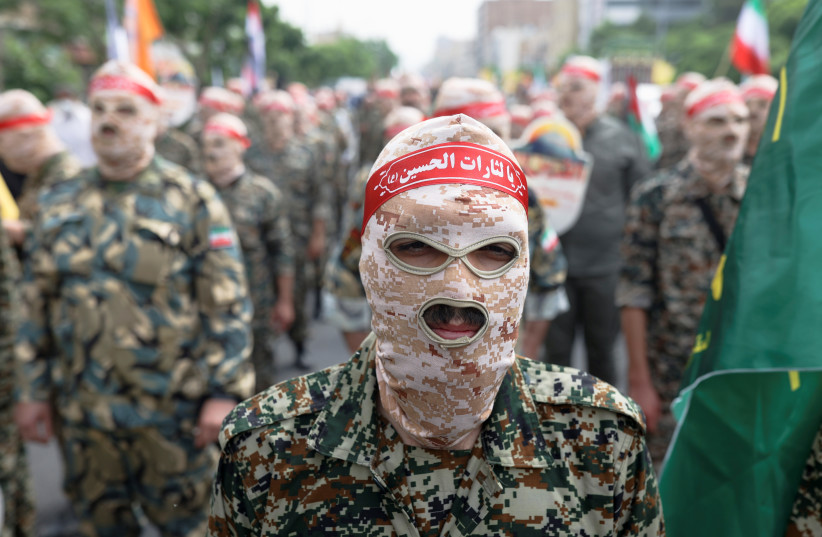Having followed the attitudes and statements of the leaders of the Islamic Revolutionary Guard Corps (IRGC) in recent years, I know very well how chauvinism is ingrained in their worldview and how it is reflected in their interpretation of events and; consequently, in their decisions and attitudes towards what is happening around them.
This deep-rooted chauvinism seems to have a close connection with the ideas that drive it, some of which are closer to illusions and fantasies than reality. Our problem in the Middle East, and especially in the Gulf, is not this chauvinism, but its reflection in Iran’s military behavior.
“the enemies of Islam and the revolution are diminishing, and Iran will gradually become one of the world powers."
Major General Hossein Salami
It plays a key role in security and military policies and decisions that have plunged many regions and countries of the region into total chaos. Recently, Major General Hossein Salami, commander-in-chief the IRGC, said that “the enemies of Islam and the revolution are diminishing, and Iran will gradually become one of the world powers.
“When you hear news about the Zionist political community, you realize that it is disintegrating politically, when you look at the US, you see that it has achieved nothing and you think of fleeing because they cannot stay in the Muslim world,” he added. “The enemies did not believe that Iran alone could spread the ideology of the revolution around the world,” he continued.
All things considered, these are nothing but perfectly populist statements. They reflect naive thinking that looks at things from a narrow perspective and does not deal with pure facts to form a coherent strategic vision.

When the leader of the largest and most dangerous militia in the region thinks in this disastrous way, we should expect more regional bullying, as long as he believes that those he sees as his country’s enemies are in a state of decline and retreat. His country is on the verge of turning in the orbit of the great powers, not realizing that the issue depends not only on the dominant military power, if any, but also on a multifaceted overall power system. Missile arsenals, drones and naval ships do not give any country a real edge at the regional or international level, especially if its behavior involves spreading chaos and unrest or undermining security and stability.
Boosting morale
Regardless of General Salami’s conviction, there is no doubt that the IRGC commander’s statements were aimed at boosting the morale of the command. The system in which he operates is based on creating illusions, introducing false ideas into the minds of his followers, and then reinforcing and promoting these ideas in every possible way.
This is no longer the case in the modern age. In the information age, where no one, no matter how closed-minded, can remain unaffected by this rapid flow of information, the consequences of which are difficult to avoid, no matter how much control, individually or systematically, over the flow and transmission of information.
In our view, this political landscape cannot be generalized about our Iranian neighbor. There is a cycle of politics and governance. There is a revolutionary circle among the guardians of the Vilayate Faqih regime.
They do not have to be apolitical or politically uninformed. But one of the main conditions for their election and promotion to leadership positions is certainly the ability to tickle emotions, influence positions and touch the hearts of subordinate militias with slogans.
The militias represent the main bulwark of a revolutionary regime that, despite more than three decades since the most remarkable event in modern Iranian history – the landing of Ayatollah Khomeini at Tehran airport on his return from exile in February 1979 – has failed to pacify and transition from revolution to state. Since then, the country has changed, its behavior upended. The problem with this model is that it creates illusions within itself that lead to disasters for itself and others, and our region is paying the price for this destructive ideology.
The writer is a UAE political analyst and former Federal National Council candidate.
